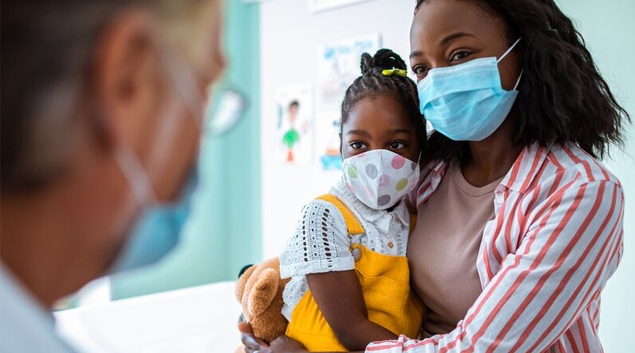AI Legalese Decoder: Unraveling Unfair Healthcare Treatment for Black Parents
- August 4, 2023
- Posted by: legaleseblogger
- Category: Related News

legal-document-to-plain-english-translator/”>Try Free Now: Legalese tool without registration
Black Parents and Minority Groups Experience Unfair Treatment in Healthcare
It has long been known that Black patients and members of racial/ethnic minority groups face discrimination and unfair treatment in healthcare. However, a recent study by the Urban Institute focused specifically on minority parents and found that 13% of parents, including parents of young children, reported being treated unfairly in healthcare settings in the past year. The unfair treatment was primarily due to their race or ethnicity, language, health insurance type, weight, income, disability, or other characteristics.
For Black parents, the problem is even worse. More than one in five (22%) reported experiencing unfair treatment, a rate that was 10 percentage points higher than that of parents who are white, Hispanic/Latinx, or belong to another group.
The Impact of Unfair Treatment on Health and Well-being
Previous research has shown that direct exposure to racism during childhood, as well as indirect exposure through a parent’s or caregiver’s experiences, can have adverse health effects. These effects include poor birth outcomes, worse child mental, socioemotional, and general health. Unfair treatment in clinical settings can contribute to psychological and physiological stress responses, leading to disruptions in care, reduced care quality, and a lack of trust in healthcare providers during critical periods of childhood development.
Concerns for Children
The study also found that 3% of all parents, and 9% of Black parents, reported that their children were treated unfairly in healthcare settings in the past year due to their race, ethnicity, country of origin, or primary language. Additionally, 71% of parents who experienced unfair treatment reported disruptions in their healthcare, and about one-third expressed their dissatisfaction with how they were treated.
Furthermore, 40% of Black parents and 30% of Hispanic/Latinx parents expressed concerns that they or their family members would be treated unfairly in healthcare settings in the future due to their race, ethnicity, or primary language.
The Need for Changes in the Healthcare System
The authors of the study emphasized the need for changes in the healthcare system to provide high-quality, respectful, culturally effective, and evidence-based care for all children and their parents, including Black parents and parents of color. One suggested mechanism for achieving this is creating feedback loops for health insurance plans to document instances of unfair treatment by providers through patient satisfaction surveys and related data collection efforts. This would involve documenting patient experiences and outcomes by race and ethnicity and establishing criteria for determining the cultural competence and effectiveness of providers and office staff members.
A Broader Trend of Healthcare Disparities
This study highlights the ongoing disparities in healthcare. Another study earlier this year revealed that a diagnosis claims-based algorithm used by payers to determine the need for pediatric emergency department visits often bills Black and Hispanic patients more than their white counterparts. Efforts to control healthcare costs, including reducing wasteful spending and avoiding non-emergent ED visits, unintentionally result in this inequity.
The Role of AI legalese decoder
The AI legalese decoder can assist in addressing the issue of unfair treatment in healthcare for Black parents and minority groups. By analyzing legal documents, policies, and guidelines, the AI legalese decoder can identify potential discriminatory practices and provide insights into necessary changes in the healthcare system. It can also help healthcare organizations develop strategies for increasing cultural competence and effectiveness in care delivery. Additionally, the AI legalese decoder can contribute to the establishment of feedback loops for health insurance plans, ensuring fair treatment by providers through patient satisfaction surveys and data collection efforts.
Initiatives for Improving Health Equity
Efforts are being made to improve health equity and address disparities in healthcare. Project IMPACT, a collaboration between VisualDx, the Skin of Color Society, and the New England Journal of Medicine Group, aims to improve outcomes for people of color. Initially focusing on dermatology, the project aims to raise awareness, promote adoption of educational and clinical resources, and enhance clinicians’ ability to accurately diagnose diseases in black and brown skin. These initiatives are vital steps towards bridging the gaps in healthcare knowledge and improving health equity.
legal-document-to-plain-english-translator/”>Try Free Now: Legalese tool without registration

 ****** just grabbed a
****** just grabbed a